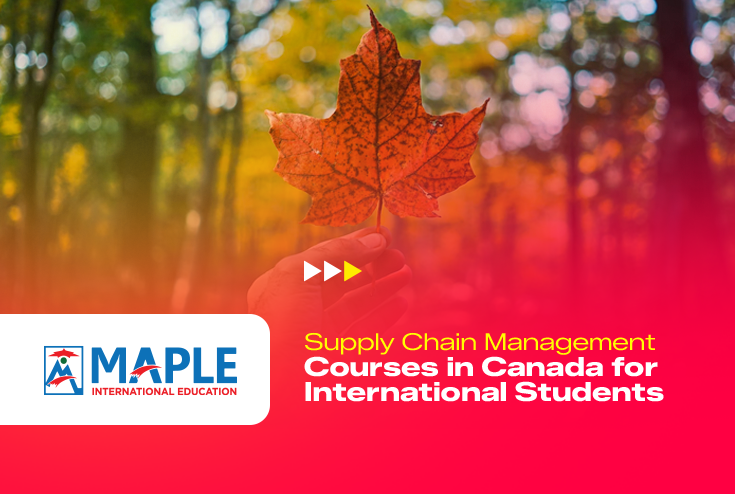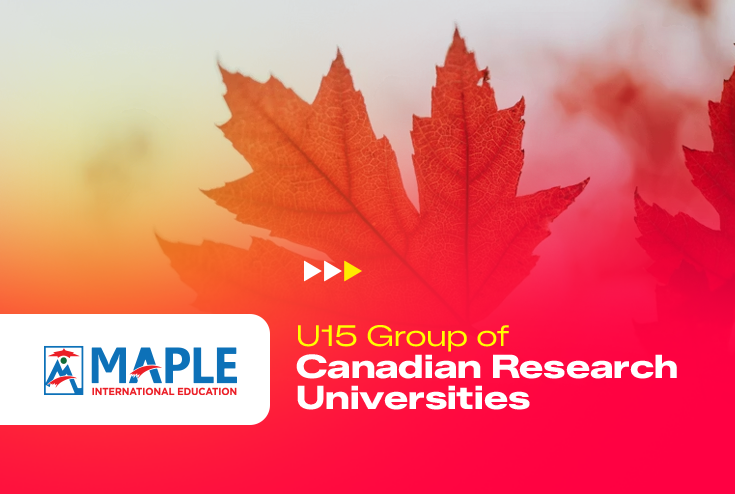
Study MBA in Australia from Nepal – Cost, PR, Scholarships & Guide 2025
Dreaming of launching your business career on a global stage? An MBA in Australia could be your golden ticket. With its world-class universities, supportive immigration system, and multicultural cities, Australia offers the perfect launchpad for Nepali students aiming for international success.
In this comprehensive guide, we’ll walk you through everything you need to know to study MBA in Australia from Nepal—from the “why” and “how,” to the cost, PR chances, scholarships, and more. Let’s get started!
Table of Contents
- Introduction
- Why Choose Australia for Your MBA?
- A Country That Values Education
- Globally Ranked Business Schools
- Easy Work Rights for International Students
- Vibrant Cities and Supportive Communities
- Is an MBA in Australia Worth It for Nepali Students?
- Global Career Opportunities
- Strong Return on Investment (ROI)
- Pathway to Permanent Residency (PR)
- Best MBA Specializations to Study in Australia
- Finance
- Marketing
- Human Resource Management
- Business Analytics
- International Business
- Eligibility Requirements for Nepali Students
- Academic Qualifications
- English Proficiency Tests
- Work Experience Requirements
- Other Supporting Documents
- Step-by-Step Process to Study MBA in Australia from Nepal
- Choose University and Course
- Prepare Documents
- Apply for Admission
- Secure CoE
- Apply for Student Visa
- Book Flights and Insurance
- Cost of Studying MBA in Australia
- Tuition Fees
- Living Expenses
- Part-Time Work Rights
- Top Universities for MBA in Australia (2025)
- MBA Scholarships for Nepali Students
- Can You Get PR After MBA in Australia?
- Why Work With an Educational Consultancy in Nepal?
- Admission & Visa Support
- Documentation & Counseling
- Pre-departure Assistance
- Final Thoughts
- FAQ
Why Choose Australia for Your MBA?
A Country That Values Education
Australia is consistently ranked among the top destinations for international education. It’s not just about degrees; it’s about future readiness, and Australia ensures students are prepared with both academic and practical skills.
Globally Ranked Business Schools
Business schools like Melbourne Business School, UNSW, and Monash are ranked in the Top 100 globally. These institutions boast triple accreditations (AACSB, EQUIS, and AMBA), ensuring their MBAs are recognized worldwide.
Easy Work Rights for International Students
As a student, you can work up to 48 hours per fortnight, and during semester breaks, you can work full-time. This allows you to gain experience and fund your living expenses.
Vibrant Cities and Supportive Communities
From Sydney’s city life to Melbourne’s cultural vibe, you’ll find strong Nepali communities, Nepali restaurants, temples, and student groups—making the transition smoother.
Is an MBA in Australia Worth It for Nepali Students?
Global Career Opportunities
Australian MBAs are highly respected across Asia, the Middle East, North America, and Europe. Graduates are hired by global firms in finance, consulting, marketing, and tech.
Strong Return on Investment (ROI)
While tuition fees can be high, many Nepali graduates secure well-paying jobs in Australia or abroad—leading to a high ROI within a few years.
Pathway to Permanent Residency (PR)
Australia offers a clear PR pathway, especially for skilled graduates who fulfill occupation list criteria. We’ll dive deeper into this later.
Best MBA Specializations to Study in Australia
Choosing the right MBA specialization is like choosing a compass—it will steer your entire professional journey. In Australia, MBA programs are designed not just to teach theory, but to build real-world business leaders. Here’s a detailed breakdown of the top specializations and what they offer:
Finance
If you're good with numbers and have a knack for understanding markets, MBA in Finance could be your perfect match.
Career Pathways:
Investment Banking
Financial Analyst
Corporate Finance Manager
Asset Management
Fintech Startups
Financial Planning & Risk Management
What You’ll Learn:
Financial Reporting & Analysis
Portfolio Management
Corporate Valuation
Mergers & Acquisitions
Global Financial Markets
Relevance in Australia:
With Australia’s strong financial sector (especially in cities like Sydney and Melbourne), finance professionals are in high demand—making this a strong choice for PR pathways and high-paying roles.
Marketing
Got creativity, communication skills, and a love for consumer behavior? MBA in Marketing lets you blend strategy with storytelling.
Career Pathways:
Brand Manager
Digital Marketing Specialist
Market Research Analyst
SEO/SEM Consultant
Social Media Strategist
Product Manager
What You’ll Learn:
Consumer Behavior
Integrated Marketing Communications
Brand Management
Digital & Social Media Marketing
Marketing Analytics
Relevance in Australia:
The digital marketing sector in Australia is booming, and companies seek talent with international exposure and a deep understanding of diverse markets—something Nepali students bring naturally.
Human Resource Management (HRM)
If you enjoy working with people and influencing organizational culture, HRM is all about leading from within.
Career Pathways:
HR Business Partner
Talent Acquisition Manager
Learning & Development Consultant
Organizational Development Officer
Industrial Relations Officer
What You’ll Learn:
Strategic HR Planning
Employee Engagement
Industrial Relations
Leadership and Conflict Resolution
Talent Management Systems
Relevance in Australia:
With a growing emphasis on employee well-being, diversity, and inclusion, HR professionals with global perspectives are highly valued—especially in education, healthcare, and corporate sectors.
Business Analytics
This is one of the hottest specializations right now. Think of it as the bridge between data and decisions.
Career Pathways:
Business Analyst
Data Analyst
Operations Analyst
Strategy Consultant
Analytics Manager
What You’ll Learn:
Predictive Modeling
Big Data Tools (Python, R, SQL)
Data Visualization (Tableau, Power BI)Decision Science
Machine Learning Fundamentals (for business use cases)
Relevance in Australia:
With a tech-driven economy and government initiatives focused on digital transformation, Australia has a massive demand for business analysts—especially in finance, healthcare, retail, and government.
Also, this field appears regularly on Australia’s skilled occupation lists, making it one of the best specializations for PR.
International Business
Want to work across countries, manage global teams, or enter international markets? This is the go-to option.
Career Pathways:
International Trade Consultant
Export/Import Manager
Global Business Development Executive
International Marketing Manager
Cross-Cultural HR Manager
What You’ll Learn:
Global Supply Chain Management
International Marketing
Cross-Cultural Leadership
Global Business Law & Ethics
International Trade Policy
Relevance in Australia:
Australia’s economy is highly integrated with Asia-Pacific trade, and companies operating internationally seek professionals who can navigate cultural and economic complexities.
For Nepali students fluent in English and exposed to multiple cultures, this specialization can unlock high-impact roles across Asia and beyond.
Final Tip on Choosing a Specialization:
Ask yourself:
What do I enjoy doing daily?
What aligns with my long-term career goals?
Which field offers better PR opportunities in Australia?
What skills do I already have, and what am I willing to learn?
Your MBA specialization should not just be market-driven—but purpose-driven. If you're confused, your educational consultancy can help you align your interests, academic profile, and PR strategy.
Eligibility Requirements for Nepali Students
Academic Qualifications
You need a bachelor’s degree (3 or 4 years) from a recognized university with a minimum GPA of 2.5 to 3.0 (varies by institution).
English Proficiency Tests
Most universities require:
IELTS: 6.5 overall (no band below 6.0)
Or TOEFL iBT: Minimum 79–90
PTE Academic is also widely accepted
Work Experience Requirements
Many universities prefer 2+ years of work experience, especially for MBA (Executive) or Professional MBA tracks. Some accept fresh graduates too.
Other Supporting Documents
Statement of Purpose (SOP)
Academic transcripts
Updated CV
Letters of Recommendation
Valid Passport
Proof of Funds
Step-by-Step Process to Study MBA in Australia from Nepal
Step 1: Choose Your University and Course
Shortlist based on ranking, cost, location, and specialization.
Step 2: Prepare Academic and Financial Documents
This includes transcripts, English test scores, passport, bank statements, etc.
Step 3: Apply for Admission
You can apply online or through a trusted educational consultancy in Nepal.
Step 4: Secure Your Confirmation of Enrollment (CoE)
After admission, you’ll receive your CoE—required for your visa.
Step 5: Apply for Student Visa (Subclass 500)
You’ll need:
CoE
OSHC (Overseas Student Health Cover)
Financial proof (at least AUD 29,710 for 12 months living costs)
GTE (Genuine Temporary Entrant) statement
Step 6: Get Health Insurance and Book Flights
Once your visa is approved, arrange accommodation and book your flight.
Cost of Studying MBA in Australia
Tuition Fees by University
Melbourne Business School: AUD 89,500 total
UNSW: AUD 59,760/year
Monash University: AUD 45,000–50,000/year
Average MBA cost: AUD 30,000–60,000 per year
Living Expenses Breakdown
Rent (shared): AUD 700–1000/month
Food: AUD 300–500/month
Transport: AUD 100–150/month
Total: AUD 21,000–25,000/year
Can You Work While Studying?
Yes! Working part-time helps cover rent and groceries—and builds your resume.
Top Universities for MBA in Australia (2025)
Melbourne Business School
Ranked #1 in Australia; famous for leadership and innovation programs.
UNSW Business School
Known for its digital innovation focus and strong corporate connections.
Monash Business School
Offers flexible study options and global student mobility programs.
University of Queensland (UQ)
A research-driven university with a strong MBA employer reputation.
Macquarie Business School
Affordable, industry-focused MBA program with internship options.
MBA Scholarships for Nepali Students in Australia
Australia Awards Scholarships
Government-funded, fully covers tuition, living costs, airfare, and more.
Destination Australia Program
Supports students studying in regional Australia—great for PR seekers.
University-Level Scholarships
Most universities offer:
Merit-based scholarships (up to 50%)
Equity scholarships
MBA Leadership or Women in Business scholarships
Can You Get PR After MBA in Australia?
Temporary Graduate Visa (Subclass 485)
After graduation, you may apply for this visa and work in Australia for 2–4 years.
General Skilled Migration (GSM)
You can apply under:
Skilled Independent Visa (Subclass 189)
Skilled Nominated Visa (Subclass 190)
Skilled Work Regional (Subclass 491)
Occupation Lists and PR Pathways
Fields like Finance Manager, Marketing Specialist, Business Analyst, and ICT Managers are often listed on MLTSSL and STSOL—making PR accessible.
Why Work With an Educational Consultancy in Nepal?
Expert Advice on University and Course Selection
They match your academic background, goals, and budget with the right programs.
Visa Processing and Document Support
A small mistake in visa paperwork can cause rejection—let experts handle it.
Pre-departure Briefings and Accommodation Help
They guide you on travel, insurance, housing, and adjusting to life in Australia.
Final Thoughts
An MBA in Australia from Nepal is not just a degree—it’s a pathway to global success, cultural discovery, and long-term settlement opportunities. With the right preparation and guidance, you can unlock your dream career abroad.
If you're serious about this journey, consult with a trusted educational consultancy today and take your first confident step toward a world-class business education.
FAQs
1. How much will it cost to study MBA in Australia?
Tuition ranges from AUD 30,000 to 60,000/year, and living expenses are around AUD 21,000–25,000/year.
2. Which country is best for MBA for Nepali students?
Australia stands out for its world-class universities, post-study work visas, and PR pathways.
3. How much does it cost to study in Australia from Nepal?
Total yearly cost averages AUD 50,000–85,000, including tuition and living.
4. Can I get PR after MBA in Australia?
Yes. Through the 485 Temporary Graduate Visa followed by Skilled Migration (189/190/491).
5. What is the IELTS requirement for MBA in Australia?
Most require a minimum IELTS of 6.5, with no band below 6.0.




